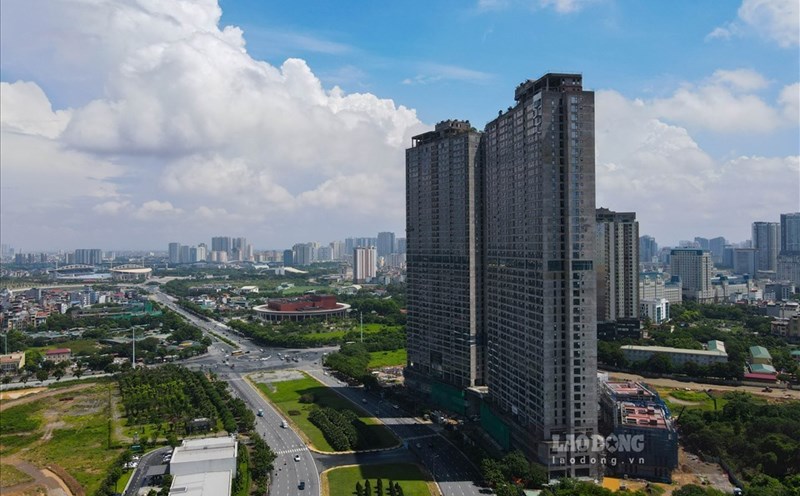In the latest market report, the Vietnam Association of Realtors (VARS) said that housing prices have continuously increased in the first 6 months of the year, contrary to people's expectations of price stabilization.
Notably, Hanoi continues to lead the country in apartment price growth rate, increasing by 87.7% after 6 years, equivalent to an increase of nearly 15% per year.
As of the end of the second quarter, the average price of apartments in the capital has reached nearly 76 million VND/m2. Meanwhile, some projects preparing to open for sale have exploration prices exceeding 100 million VND/m2 although liquidity is slowing down.
Ho Chi Minh City and Da Nang also recorded significant price increases, reaching 48.3% and 69.8% respectively compared to the base period. In Ho Chi Minh City, the average apartment price is about 77 million VND/m2, with the central area alone reaching 82 million VND/m2. Da Nang recorded an average price of 66.4 million VND/m2.

Although the supply of residential real estate has increased sharply with about 64,000 products in the first 6 months of the year (up 90% over the same period in 2024), the structure is still clearly shifted. Projects priced at over VND80 million/m2 account for a large proportion, bringing the high-end and luxury apartment segment to 62% of the total supply, equivalent to more than 10,000 products. Meanwhile, commercial apartments under VND60 million/m2 are almost absent in large cities such as Hanoi, Ho Chi Minh City and Da Nang.
The mid-range apartment segment only accounts for about 30% of the supply, mostly from large suburban projects with prices starting from 40 million VND/m2. Affordable apartments are mainly from social housing projects, reaching about 3,000 units, but still not enough to meet actual needs.
The rate of housing price increase far exceeds people's income. In the first half of this year, the average income of workers increased by only about 10%, reaching 8.3 million VND/month, while the income in urban areas was about 10 million VND/month. This makes it increasingly difficult for middle- and low-income people to access housing.
Mr. Vo Huynh Tuan Kiet - Director of Marketing Department of CBRE Vietnam housing projects commented: "The market is currently only focusing on developing the luxury segment, while demand is mainly in the segment under 60 million VND/m2. This will lead to fierce competition between investors as supply continues to increase in the coming time".
Faced with the serious phase difference, VARS recommends that management agencies need to have mechanisms and policies to guide cash flow into the housing segment suitable for the majority of people. At the same time, it is necessary to speed up the progress of key transport infrastructure projects such as beltways, metro, highways, etc. to expand urban space and help diversify housing options at more reasonable prices.
According to VARS, part of the reason for the housing disruption is that the current market is mainly led by large investors with high profit expectations. Small and medium-sized enterprises are encouraged to link up to develop low-cost housing projects and small-scale urban areas in provinces - segments with high demand and good liquidity potential.











